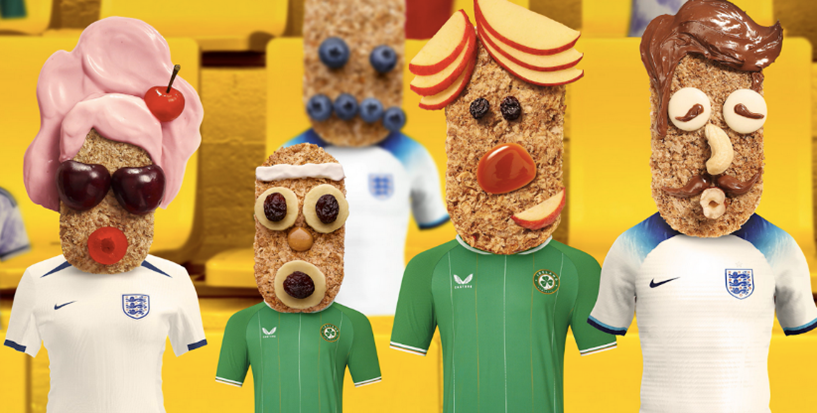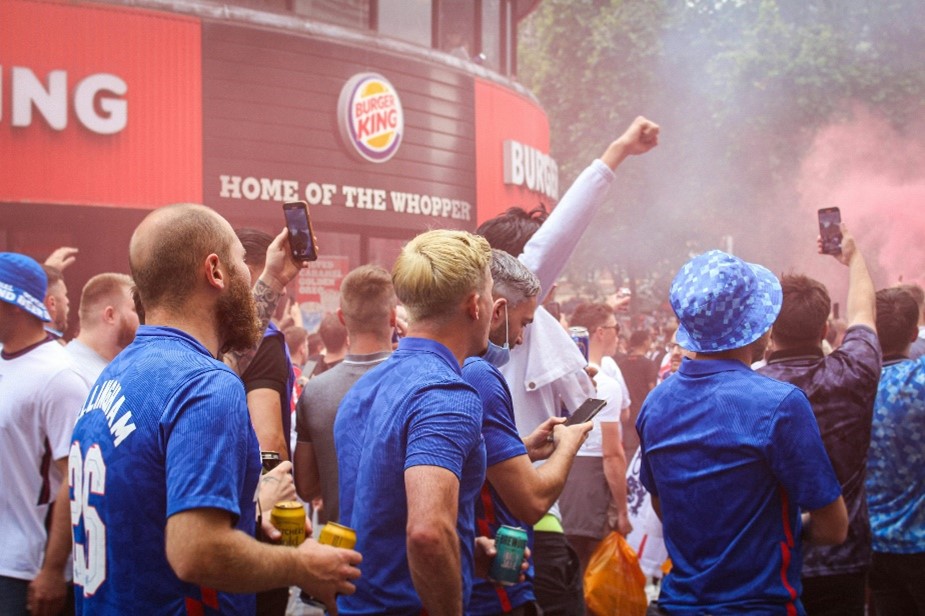The Lionesses have done it (almost).
With the England’s Women reaching their first-ever World Cup final, the nation is again preparing for one of the most memorable sporting moments courtesies of Sarina Weigman and the team. In terms of sporting accomplishments, they don’t get much better than this, however will this on-field success translate into better support for the women’s game, and entice more brands to get involved?
The Women’s World Cup presents an unparalleled marketing opportunity for brands to promote gender equality, engage with diverse audiences, and amplify their message of empowerment. While some brands have excelled in leveraging this platform, there’s still untapped potential and room for improvement across the board.
By making equal investments, fostering long-term engagement, and embracing diverse representation, brands can not only capitalise on the marketing opportunity that the on-field success brings, but also contribute to the broader movement of empowering women in sports and society. As the world continues to embrace gender equality, brands have a unique chance to position themselves as true advocates of progress and change through their association with the England Women’s National team.
Looking at how many eyes are now on the women’s game; the opportunity speaks for itself. Globally, 2 billion people are alleged to have viewed the tournament, with record-breaking numbers here in the UK, despite the difficult time zone differences.
Research by SportsPro also indicates that fans of women’s sport are 25% more likely to purchase sponsor products, compared to followers of men’s sport, which surely makes this audience a marketer’s dream.
Moreover, brand recall among women’s sport fans is twice as likely as among those who follow men’s sport. These findings highlight the significant commercial potential for brands to tap into, provided they are willing to make sustained and meaningful contributions to the women’s football industry. After all, 50% of fans of women’s sport ‘strongly agree’ that sponsors should ‘look to make the world a better place.’
With all that being said, they are some brands which have taken like a duck to water in promoting England’s successes in an impactful, yet light-hearted way which connects with its intended audience.
Here are a few of our favourite brand activations during the Women’s World Cup this year:

Breakfast brand Weetabix were very quick to activate during the Women’s World Cup launching an on-pack promotion for England fans to win tons of prizes including signed merchandise, as well as running several 30-second ads during the tournament itself.
The brand perfectly intertwined their own messaging whilst giving it a World Cup spin, suggesting it’s a perfect time for fans to grab their Weetabix while they sit down and relax to watch the early UK-time kick-offs.
These ads definitely won’t have been cheap, but with the BBC revealing a peak audience of 7.3 million during the semi-final against Australia alone, the potential reach of this activation will be through the roof.
Weetabix have even extended their partnership with England FA by starting their own football programme for girls, called the Weetabix Wildcats. These sessions are run at over 1,250 Wildcats centres across the country, giving girls aged 5 to 11 the chance to play football for the very first time. This programme showcases the brand’s dedication to not only promote the professional game, but to help develop the grassroots level and get as many women involved as possible.
England in a semi-final today, so it’s getting increasingly hard for some people to ignore the Women's World Cup.
But help is out there…
18+ BeGambleAware | #FIFAWWC | #AUSvENG pic.twitter.com/pAoic4ViTB
— Paddy Power (@paddypower) August 16, 2023
Paddy Power already has a reputation of being the ‘banter kings’ on social media, and they have more than lived up to expectations during the Women’s World Cup.
Very aware of their existing fanatical football audience they engaged in a way that well suits the brand, whilst calling out some of the taboo opinions which have been spread regarding the women’s game.
After only posting this clip a few days ago, the brand has already achieved almost 1 million views on Twitter (X) alone, showcasing the power of reactive social media as well as becoming one of the best stereotype-busting campaigns of the tournament so far.
Now this isn’t a UK-based activation, however I couldn’t not include it after the impact it had.
Ahead of France’s opening fixture of the World Cup, telecoms giant Orange launched an advertisement with a very unexpected twist. The ad begins with footage of the French men’s national team on the field, with stars such as Kylian Mbappe, Antoine Griezmann and Olivier Giroud at the forefront.
However, the ad then reveals that there was a surprising twist to what viewers had just seen. Using visual effects which had been applied to the players, the final edit featured star female players, proving that women’s football is as technical as the men’s game.
This campaign has without doubt been one of the standouts from the tournament so far, accumulating over 5 million views of YouTube!
On the other hand, looking at the brands who have really missed the mark this summer, England’s official kit manufacturer, Nike arguably scored the biggest own goal of the tournament. For the second tournament running, England goalkeeper Mary Earps was left out of the promotional pictures when the Lionesses World Cup kit was launched due to her shirt once again not being available for fans to buy.
Earps, and fans alike have been left disappointed by the brand’s decision, who admitted they do not sell women’s goalkeeper shirts because it is not part of their ‘commercial strategy.’ Earps even offered to fund the production herself but was told this would not be possible, while fans have had to take the issue into their own hands and start a petition for her shirt to be sold on the shelves, like her teammates’ is.
Anyhow, all we can do now is eagerly await the prospect of England triumphantly lifting the World Cup trophy on Sunday. Whatever happens, the journey is far from over, and the synergy between the sport, brands, and society’s progress promises an inspiring path forward.
If you’re a brand looking for a sport, or a sport looking for a sponsor, drop us an email at hello@hatch.group.




